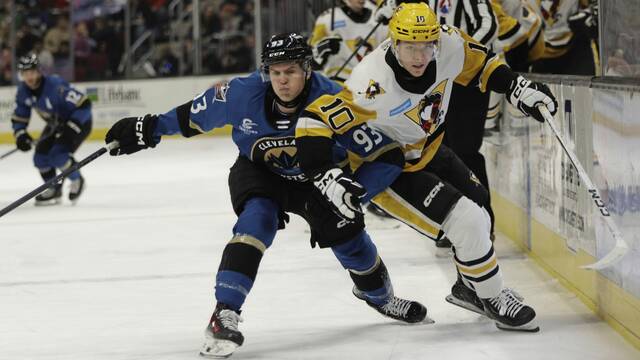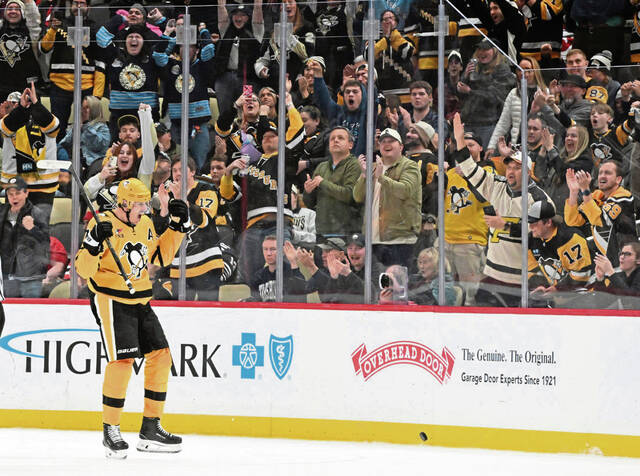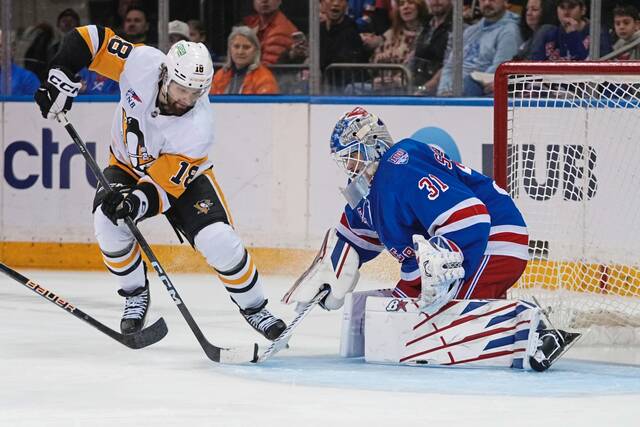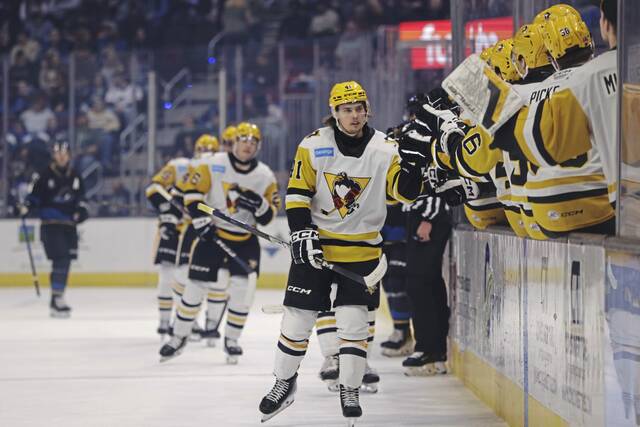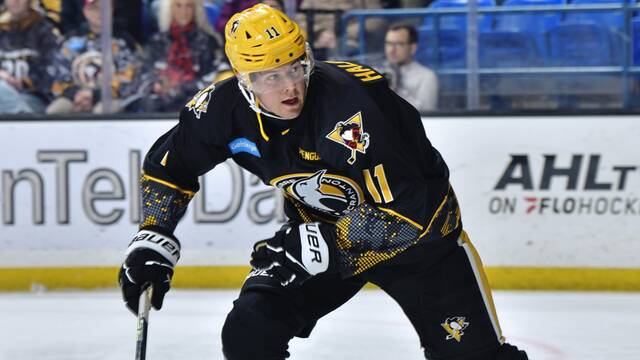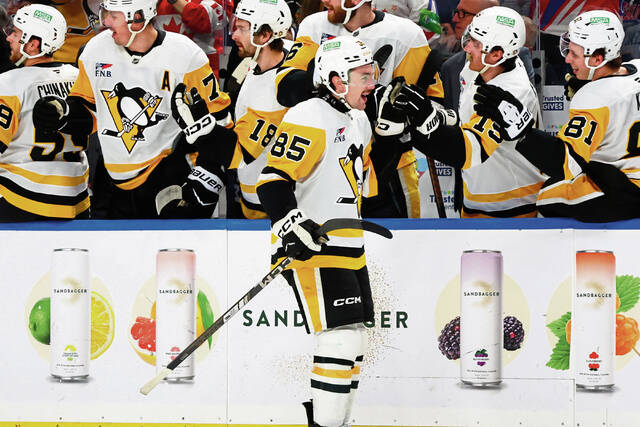It hasn’t even been a year since Wes Clark was hired as the Pittsburgh Penguins’ vice president of player personnel.
Brought on staff July 9, 2024, Clark was reunited with president of hockey operations Kyle Dubas, with whom he worked in previous stops with the Toronto Maple Leafs and Sault Ste. Marie Greyhounds of the Ontario Hockey League.
And in barely one trip around the sun, the duo has crafted a seismically different route for the franchise.
That direction was manifested in how the Penguins operated during this weekend’s draft as the club selected an ample 13 players. The last time they had that many selections was in 1994 when the draft was 11 rounds.
No one with the team is eager to use the term “rebuild” — or any other verbiage that involves the “re-” prefix — but their actions this weekend were aligned with a team trying to create something different than what has largely gone on for the past two decades.
“I think everybody knows where the organization’s at,” Clark said Saturday in the team’s draft headquarters in the Roberts Building downtown. “Working with Kyle … our alignment is critical. Believe in a lot of the same things in terms of process, control the things that we can control. This year was great. I can’t complain. It’s a great organization, great ownership. Thirteen picks this year, we’ve got a number of picks next year, a number of picks the year after that.
“We’ll do our best to execute on those picks and continue trying to make this club better and expedite it as quick as we can.”
On Friday, the team maneuvered a handful of times to wind up with three first-round selections: forwards Benjamin Kindel (No. 11 overall), Bill Zonnon (No. 22) and William Horcoff (No. 24)
“We believe that all three are going to be very high-quality players in the NHL,” Dubas said Friday. “So we’re excited about that, excited to get to work with them. Obviously, when you’re in our position, you’re accruing picks and prospects, but you have to make good on them. You have to draft good players. You have to do a great job in developing them. We’ll turn them over after today to (director of player development) Tom Kostopoulos, and we’ll get to work.”
The team also swung a trade involving NHL assets. Defenseman Connor Clifton and the No. 39 overall selection in the second round were acquired from the Buffalo Sabres on Saturday in exchange for defenseman Conor Timmins, a pending restricted free agent Tuesday, and defensive prospect Isaac Belliveau, a fifth-round pick (No. 154 overall) in 2021.
With the No. 39 pick, the team selected defenseman Peyton Kettles of the Western Hockey League’s Swift Current Broncos.
Management was high on Timmins after acquiring him from the Maple Leafs via trade March 7. The 26-year-old appeared to be part of the club’s future, even if just in a temporary sense. But the attraction to landing Kettles prompted the transaction.
“(Timmins) helped us here in the short term,” Clark said. “Wish him nothing but the best because (of the) long relationship with Conor. We get a second-round pick for Conor at that point and Connor Clifton, who can improve the competitiveness on our back end, physical play, bring a little more fire to the lineup. On top of the second-round pick, it made a lot of sense. Good business by Kyle there.”
The third round saw the Penguins take three players as well: defenseman Charlie Trethewey (No. 73), goaltender Gabriel D’Aigle (No. 84) and defenseman Brady Peddle (No. 91).
In the fourth round, the team selected a familiar face in forward Travis Hayes (No. 105), the brother of Penguins forward prospect Avery Hayes.
Another trio was obtained in the fifth round: forward Ryan Miller (No. 130), defenseman Quinn Beauchesne (No. 148) and forward Jordan Charron (No. 154).
Things wrapped up with two more forwards, Carter Sanderson (No. 169) in the sixth round and Kale Dach (No. 201) in the seventh.
There is no guarantee any of these players will ever wear a jersey in a game of consequence for the Penguins, let alone lead the team to a triumphant future.
But through the sheer number of prospects they drafted, they have effectively plotted a considerably emphatic course correction for a franchise that is rebuilding, no matter what terminology is used.
“Yeah, 13 picks is a lot,” Clark said. “They’re not all going to work out. Obviously, the more lottery tickets you have increases your chances to, hopefully, hit. So, yeah, we’ll see as time progresses, and with the development staff with (Kostopoulos) and all the new bodies in the system, it will be interesting to see who develops quicker than others and who can get there at the end.”



